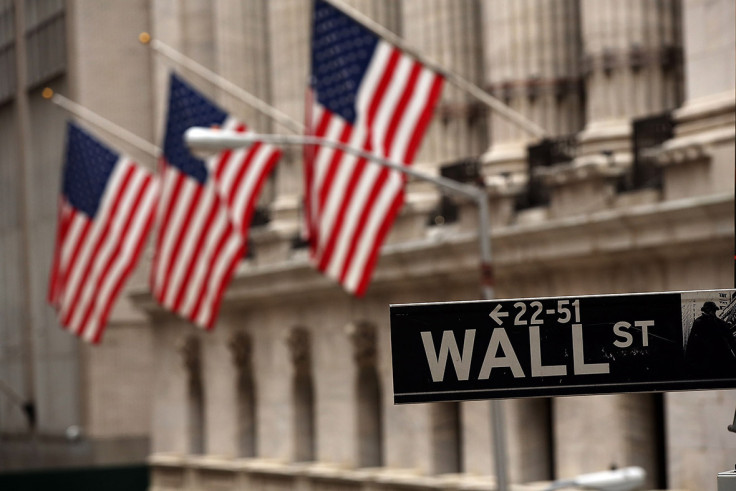Overstock's Patrick Byrne: I feel the blockchain revolution is my victory
Byrne's t0 project is the only effort that has brought the spirit of Bitcoin and real decentralisation to capital markets.

In sudden and sad news, Overstock.com Inc. founder and chief executive Patrick Byrne has been left with no other option than to take an indefinite personal leave of absence to battle stage 4 hepatitis C. He contracted the infection in 1984 in China "when a barefoot doctor sewed up a head wound under less-than-ideal conditions".
Wired reported the story as a major blow to the global Bitcoin and blockchain effort. They are correct. Byrne's t0 (tee zero) project is the only effort that has brought the spirit of Bitcoin and real decentralisation to capital markets, as opposed to a half-way approach that changes a bit of reconciliation here and there.
Byrne spent longer than a decade trying to arraign Wall Street for its iniquities, during which time he was smeared, investigated and written off as insane, only to see the whole system come crashing down because of the very things he was railing about.
In an interview given to IBTimes right before taking medical leave, Byrne said: "I'm not trying to start fights anymore. And I'm not in the business of bayoneting the wounded. I feel the blockchain revolution is kind of my victory. I don't care whether I win it, someone else wins it. The fact is the blockchain revolution is going to accomplish all these things I was after 10 or 12 years ago.
"And actually when I'm at these financial conferences speaking, I feel kind of awful for people, frankly, because I think this is an extinction event. I think that in five years a very significant fraction of people and companies are going to be so disrupted. I feel I'm looking at people, many of whom are going to lose their jobs. I have this great sympathy for these people I used to be fighting.
"But it is time. This is a healthy change."

IBT had asked Byrne what he thought about the DTCC experimenting with a blockchain partnership, given t0's hard line approach when it comes to much of the old central clearing infrastructure of Wall Street. "The DTCC and I used to be at great logger heads; 10, 12 years ago I was horrible to them," said Byrne. "However, I've gotten to know them in the last year and I respect them. I think Michael Bodson, the CEO, is a man of honour and good intention."
Netting
Byrne believes net settlement to be "the original sin" of capital markets infrastructure. He said the t0 system is designed to do gross settlement. "We could also do net settlement but we have designed it to be gross settlement, or what we call true settlement, because the public will understand that better," he said.
In the current system, when you buy some shares in a company, rather than a straightforward exchange, everything is entered into a fungible pool of shares that feeds another fungible pool of shares and everything gets netted at the end of the day. This process is facilitated using a system of IOUs whereby property rights and legal ownership of the shares have been divorced from the entities being transacted.
"To me, that's the great original sin, once you divorce those two," said Byrne. "We laugh at the Soviet Union for trying to run a society without property rights. But we have taken a whole financial market and our capital markets of the civilised world; we have taken property rights and we have securitised them, and digitised them and hypothecated and re-hypothecated and pre-netted and netted and sliced diced and circumcised ... and the system has lost track of who owns what. It's another great offence to me that the system can lose track of who owns what. And to be honest that's part of what happened in 2008."
Freezing
The financial collapse of 2008 was a series of events, a large part of which has since been described as a settlement crisis. The big banks reached a point where nobody knew who they could trade with and the system froze. This key event happened a couple of days after the collapse of Lehman Brothers. Commentators such as Dr Adam Back, the chief scientist at Blockstream, have pointed out a blockchain architecture would have allowed banks to keep lending despite the crash conditions; this view was more recently echoed by the CTFC.
Byrne said: "People didn't know where they could trade. When everybody owes each other IOUs that can be in multiple places at once, that's how the system couldn't tell any more who owned what and who owed what to whom.
"Blockchain could have prevented 2008. But it could only do that if you built it with gross settlement and didn't rebuild net settlement into it. There is absolutely no reason in the world of blockchain to build in net settlement. It's like saying you have got a new Ferrari and we are going to put a lawnmower engine in it.
"There's no technical reason you would do that. The only reason is, that it's in those points of net settlement that various opportunities for mischief occur. Wall Street sees there's new age coming, a new blockchain age, and they want to see those cracks - those opportunities for mischief - to be built into the new system."
Shorting
Wall Street veterans like to argue that a pure blockchain design, and with it a move towards instant settlement would result in a fearful level of information leakage into the marketplace. An often cited example is short selling, where securities repatriated too quickly will leak critical information to the market's most sophisticated investors. Short selling creates large amounts of liquidity, these people say, so another solution will have to found to preserve it.
Byrne said: "First of all, that position is the industry's attempt to use gibberish to confuse the issue. I would say that the current system doesn't protect the retail investor; it doesn't protect them from signal leakage; there are already all kinds of signal leakage and information leakage. There's a whole industry - high frequency trading - which has arisen to front-run based on signal leakage. So, that whole argument is nonsense."
The current short selling system allows a stock to be two places at once. To do so creates a "phantom supply" in the marketplace. It amounts to fractional reserve banking without a reserve requirement. Byrne recommends ontological parsimony. "Our system prevents that from happening. It's either here or it's there; if I loaned it to you then before I sell it, I have to get it back from you. It makes it impossible to do fractional reserve banking with shares of stock. Because you know what - you shouldn't be able to do fractional reserve banking with shares of stock."
As far as the claim that this activity creates liquidity in the market, Byrne added: "That's not liquidity; it's volume: the idea of having a system where you can have one share of stock appear in multiple places at once, and that people can daisy-chain, so it can be at countless places at once."
The t0 system has come up with an elegant solution in the form of a shorting token which addresses opacity in the market. Byrne explained that the beneficial owners give t0 an attestation as to their inventory that is segregated and at the end of the day this is tokenised. The tokens represent the right to borrow and short sell a share. A reverse auction is run overnight and at eight the next morning the winners get their tokens.
"This is actually better than a locate," noted Byrne. "If you have a locate on stock you can short sell, but if you short cover, theoretically you are supposed to go back and get another locate. For the high frequency guys that doesn't work; it introduces latency as they have to keep going back and get another locate. This, however, is a pre-bar; you can short cover all day long.
"It solves a problem for the beneficial owners who are getting the real price, the real negative rebate for that inventory they have; the short seller isn't paying some price negotiated with his prime broker, but a real price made on a public exchange.
"And the regulator has a much easier job because instead of applying this vague language about 'did the short seller have reasonable good faith and all that nonsense' it comes down to an easy question of did you have a token or didn't you have a token. The folks in the middle might not be too happy because that's their big spread," he told Tabb Group in an interview.
Byrne recently received SEC approval to issue the first cryptosecurities. He said a rights offering has been announced but no date has yet been set. "What I can say is we didn't spend those months and that million or two million dollars to get that through the SEC to just let it gather dust on the shelf."
In a letter to shareholders, Byrne recommended the company's general counsel Mitch Edwards, who previously worked at BitTorrent and thoroughly understands the t0 technology, stand in as CEO in the meantime.
We would like to take this opportunity to wish Patrick a speedy recovery.
© Copyright IBTimes 2025. All rights reserved.






















